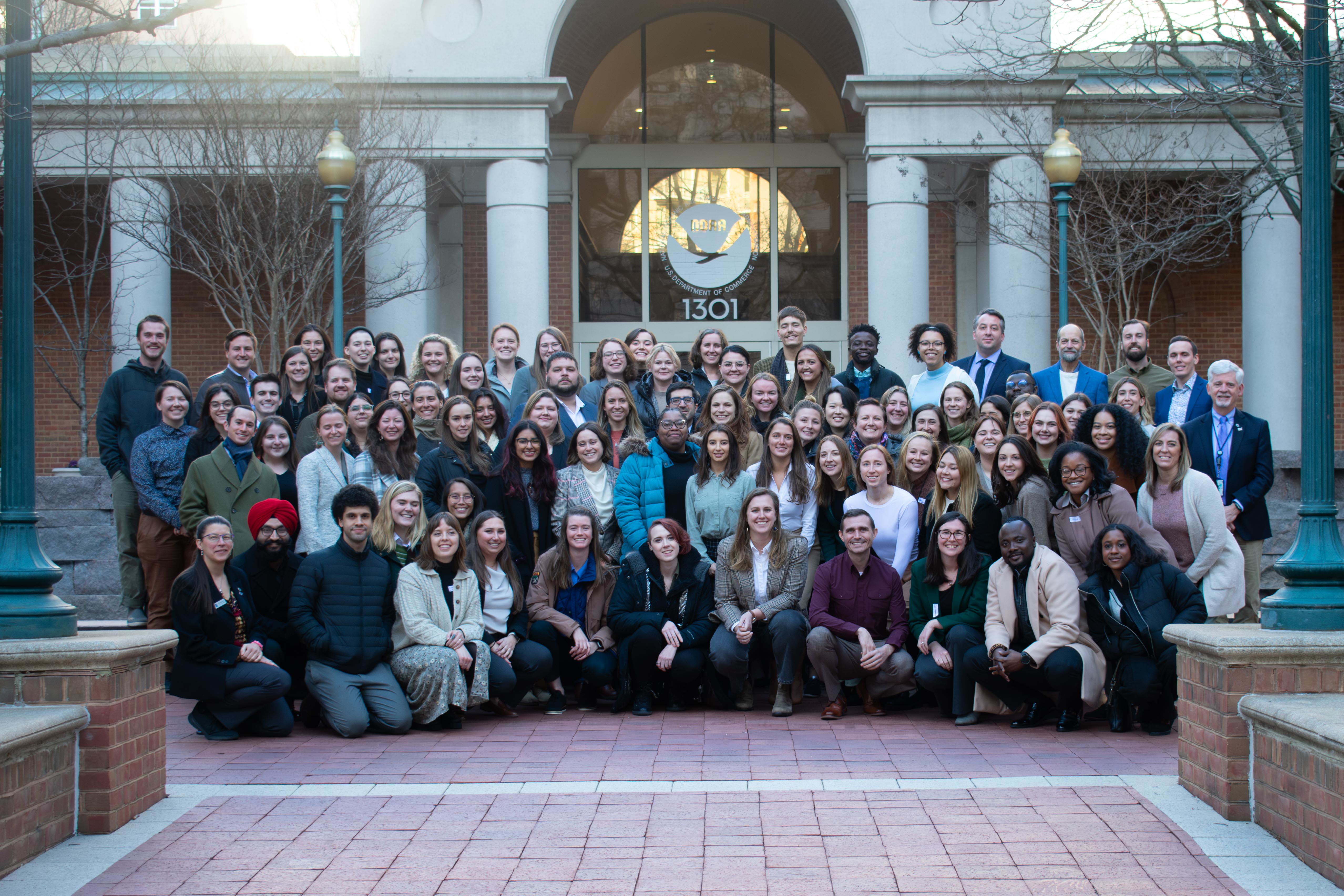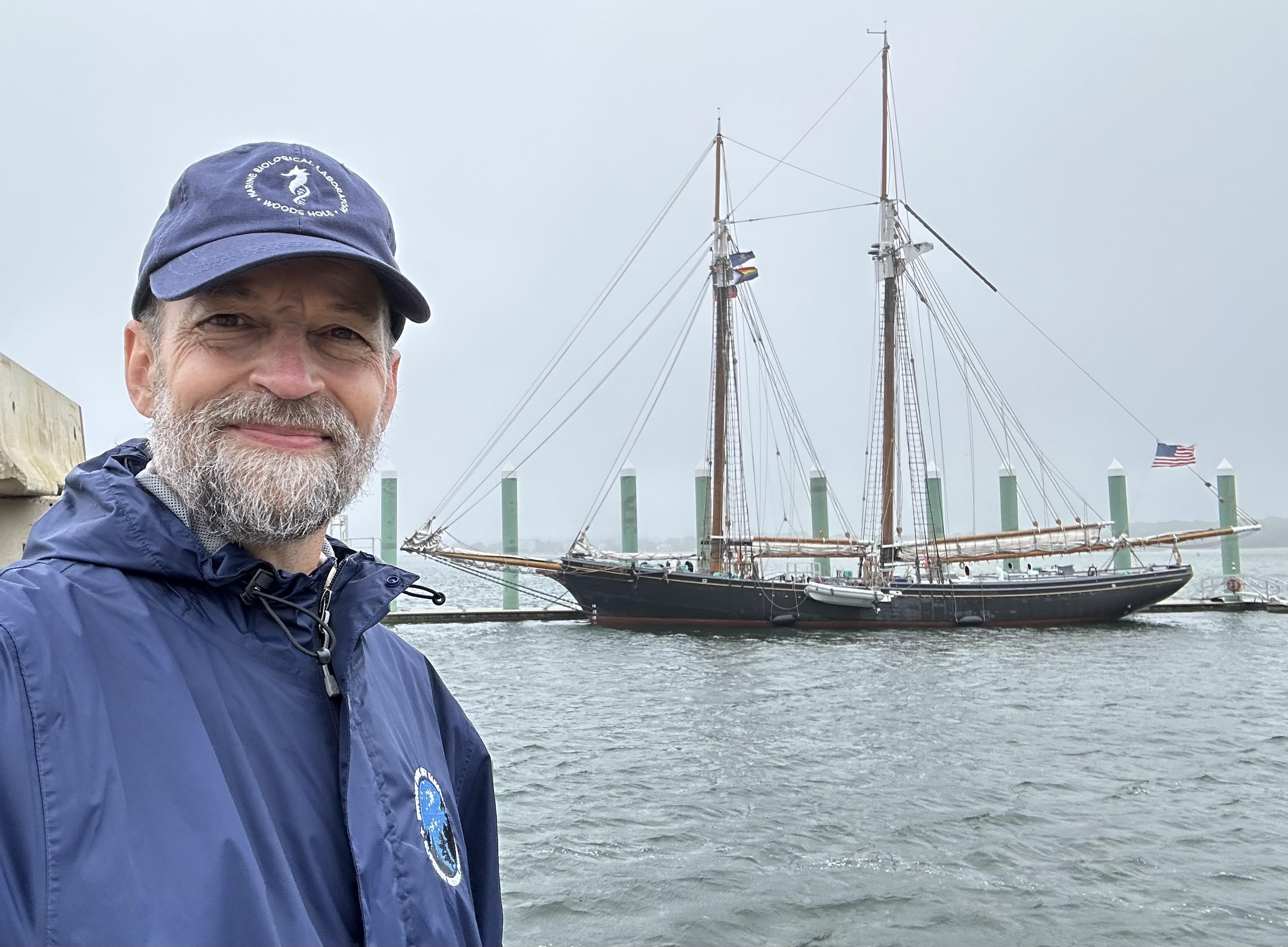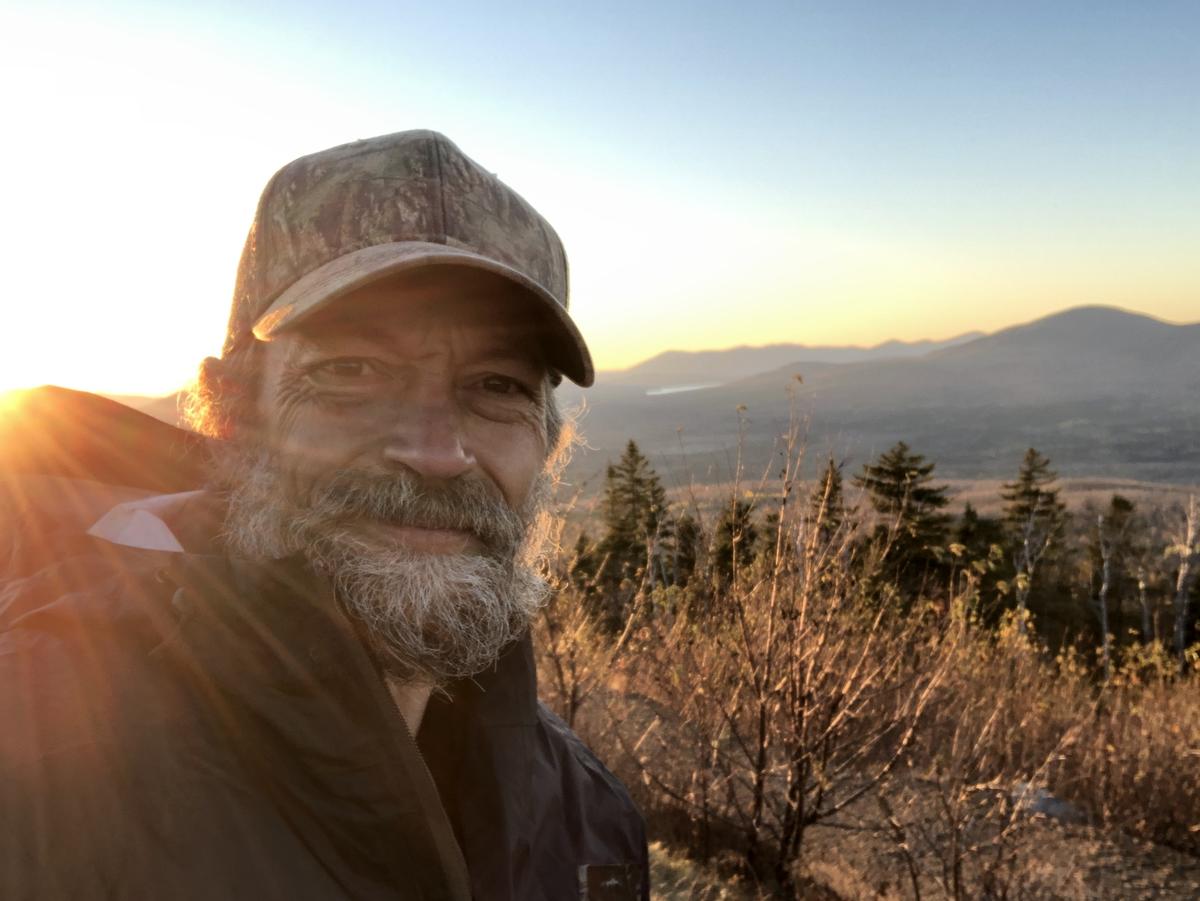Minnesota Sea Grant 2024 Knauss Fellow Erik Simula smiles in front of a sunset over forested Appalachian mountains in Maine. Image credit: Erik Simula.
Duluth, Minn. — “My connection to Lake Superior is the primary reason I’m pursuing this fellowship,” said Erik Simula, Minnesota Sea Grant’s 2024 Knauss Fellow.
A third-generation Finnish/Sami American born in Duluth, Minnesota, Erik has spent most of his life in the forest and lake country of the 1854 Ceded Territory in northeastern Minnesota. These are the ancestral lands of the Dakota, Ojibwe/Anishinaabe, and other Indigenous people. His heritage and passion for the outdoors inspired him to learn about traditional Indigenous lifeways and worldviews.
“It’s imperative that we rekindle our relationship with the Earth and uphold our caretaker responsibilities,” Simula said.
His education has taken him from Lake Superior to Arctic Alaska and Scandinavia. He gained experience in commercial fishing, logging, maritime transportation, natural resource conservation, teaching, and public service, all the while fulfilling his love for the natural world.
“When something really strikes me, like building birch bark canoes or training sled dogs, I want to learn everything I can about it,” he recounted. “The Knauss Fellowship caught my interest in a similar way.”
The Sea Grant John A. Knauss Fellowship provides a year-long educational and professional experience to graduate students who have an interest in ocean, coastal and Great Lakes resources and in the national policy decisions affecting those resources.
While most Knauss Fellows are based in Washington D.C., Simula operates out of Woods Hole, Massachusetts, so he can work directly with his mentor/supervisor. His newly created position in tribal engagement is with the U.S. Department of the Interior (DOI) through an interagency agreement between the Bureau of Ocean Energy Management (BOEM), Woods Hole Coastal and Marine Science Center and the National Oceanic and Atmospheric Administration (NOAA).

“I’m learning about endangered North Atlantic right whales, underwater acoustics, and helping the government work with tribes to collaboratively solve complex issues, like developing offshore energy while honoring treaty rights and protecting the marine environment,” Simula said.
Simula’s job is to synthesize multiple perspectives, policies, and resources, including Western science and Indigenous traditional ecological knowledge to develop priorities and frameworks that support tribal nation engagement and to communicate findings to broad audiences in a wide variety of ways.
He brings his knowledge and teaching experience with the Ojibwe bands of the Minnesota Chippewa Tribe to promote awareness and understanding of tribal sovereignty, culture, history, and connection to the land, which he said are important for sincere relationship building, genuine consultation, partnership, and co-production of knowledge.
In addition to helping the U.S. government fulfill its federal trust and treaty responsibilities to 574 federally recognized tribal nations, Simula serves as an executive secretary for the National Ocean Mapping, Exploration, & Characterization (NOMEC) Council. In this role, he interacts with a wide range of federal, interagency, and non-federal organizations on ocean mapping and exploration activities, and reports to BOEM and the United States Geological Survey (USGS).

During a recent Knauss assignment to Alaska, Simula met with BOEM and Alaska Sea Grant staff, attended the Western Alaska Interdisciplinary Science Conference, and communicated with Seascape Alaska scientists on their regional mapping campaign. He also completed coursework at the University of Alaska that aligned with his graduate thesis on ecosystem services and ethics.
When asked about his time as a Knauss Fellow, Simula said he finds joy in working with inspiring people, developing skills in communication and teamwork, and diving into research. He noted that the Knauss Fellowship program emphasizes professional development and offers extraordinary networking opportunities.
“I’m in a unique position to tell some significant stories,” he said.
Some of his stories will come from his science-policy experiences as a Knauss Fellow. Other stories have a more theatrical origin. He had an opportunity to play Bob Bartlett, captain of the schooner Ernestina-Morrissey, in the documentary series “Sails Over Ice and Seas: The Life and Times of the Ernestina-Morrissey” which expects to complete production by the end of 2024.
Simula said he plans to complete his degree in the Master of Tribal Resource and Environmental Stewardship (MTRES) program at the University of Minnesota Duluth (UMD), continue working in federal service, and chronicle some of his experiences in a memoir.
“Being in public service is incredibly important,” Simula said, “not just in federal service, but in life and family.”
ADDITIONAL INFORMATION
Minnesota Sea Grant is one of 34 nationwide federal-university partnerships whose mission is to enhance the practical use and conservation of Great Lakes, coastal, and marine resources in order to create a sustainable economy and environment. MNSG is part of the National Sea Grant College Program, administered by the National Oceanic and Atmospheric Administration.
Recruitment for the 2026 Knauss Fellowship Program year begins in the fall of 2024. Applicants must apply through their state Sea Grant program. Contact Minnesota Sea Grant Research and Fellowship Coordinator Alex Frie for Knauss Fellowship information.
CONTACTS:
Erik Simula, 2024 Knauss Fellow, Minnesota Sea Grant, University of Minnesota Duluth. simul006@d.umn.edu, 218-226-8482.
Amanda Shie, communications associate, Minnesota Sea Grant, University of Minnesota and University of Minnesota Duluth. shie0093@umn.edu
Marie Thoms, communications manager, Minnesota Sea Grant, University of Minnesota and University of Minnesota Duluth. methoms@d.umn.edu
AVAILABILITY:
Erik Simula will be available by email and cell during normal business hours July 15-19.
